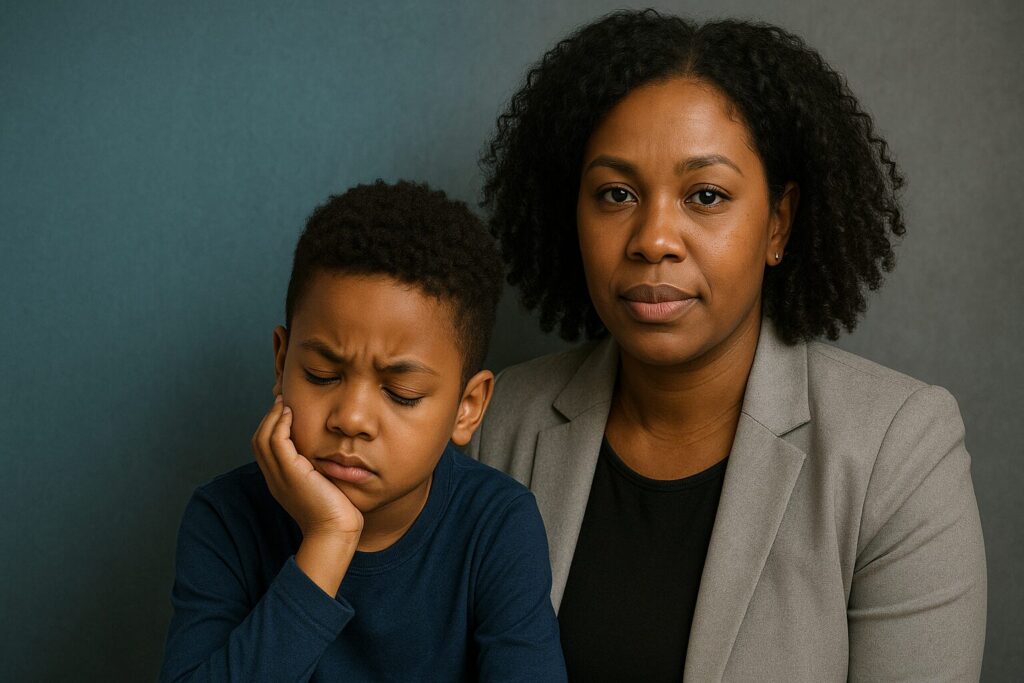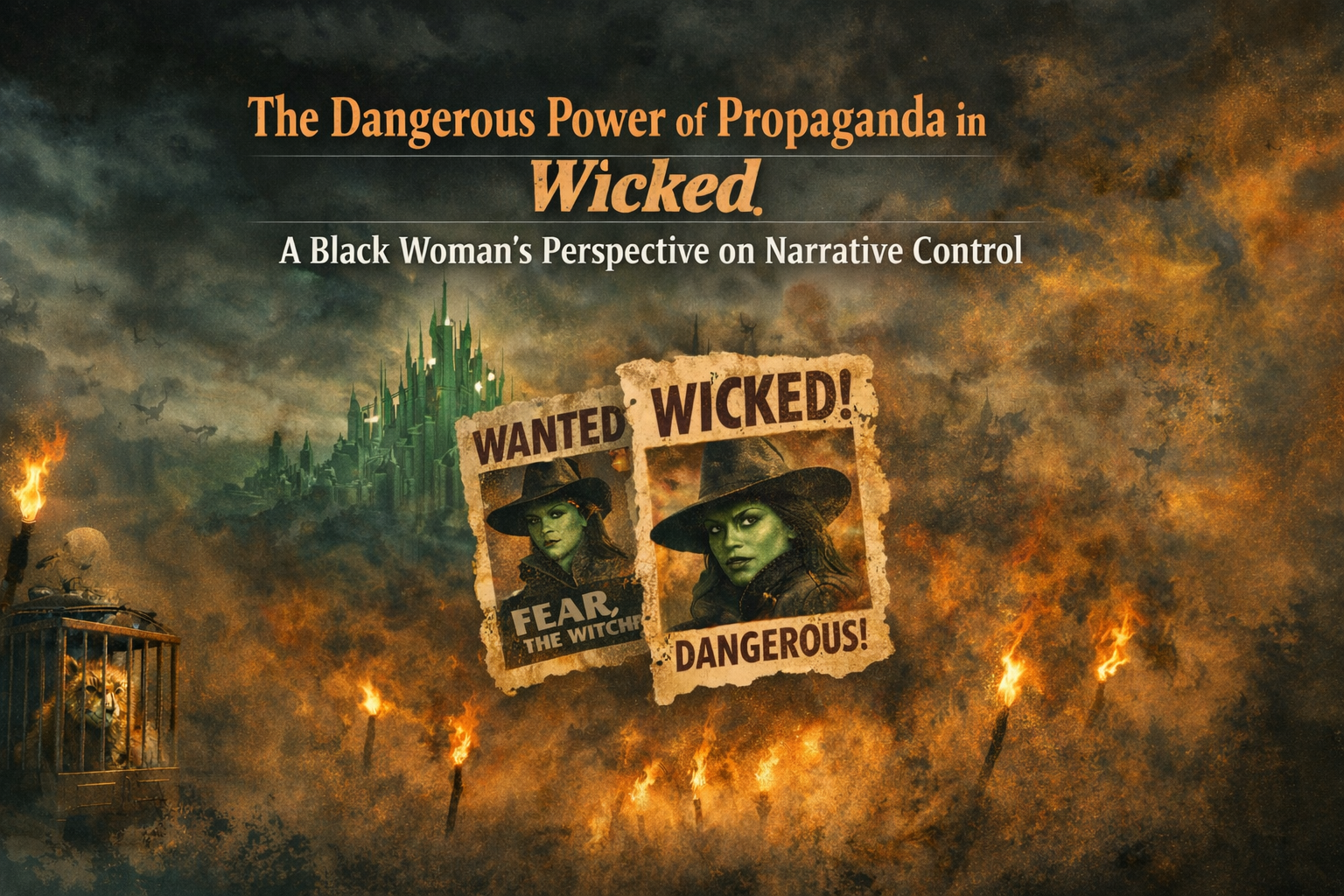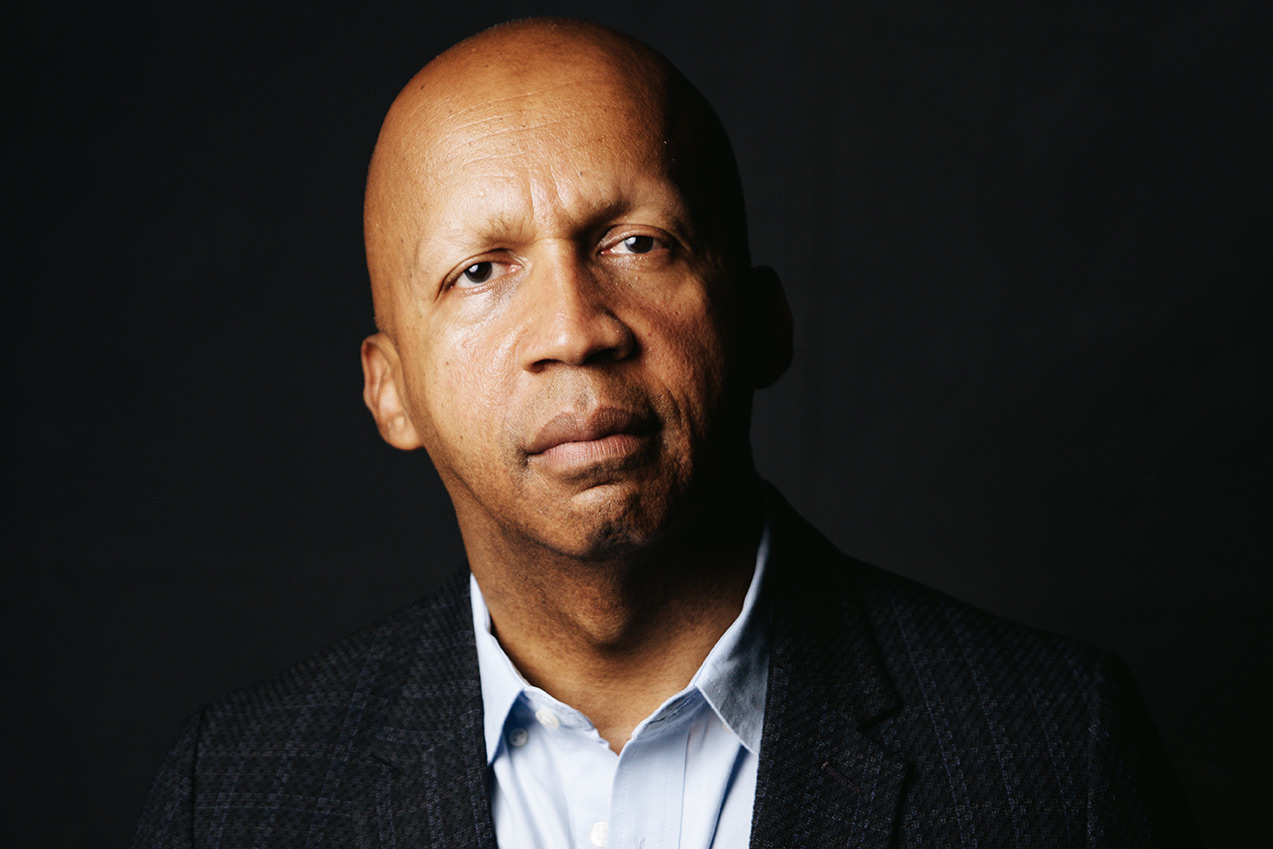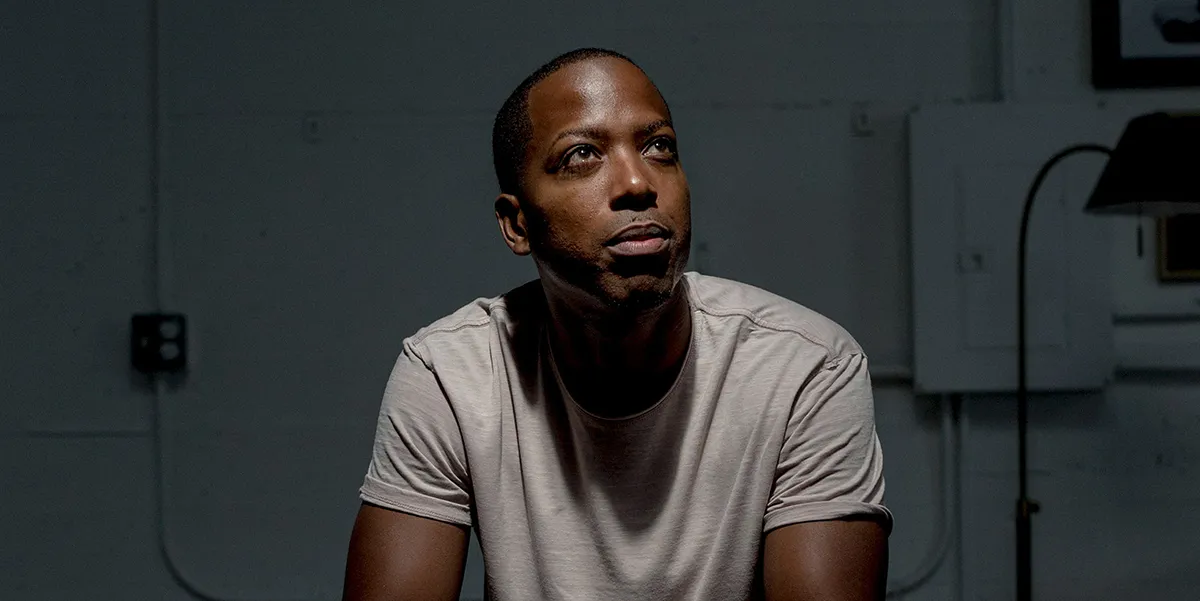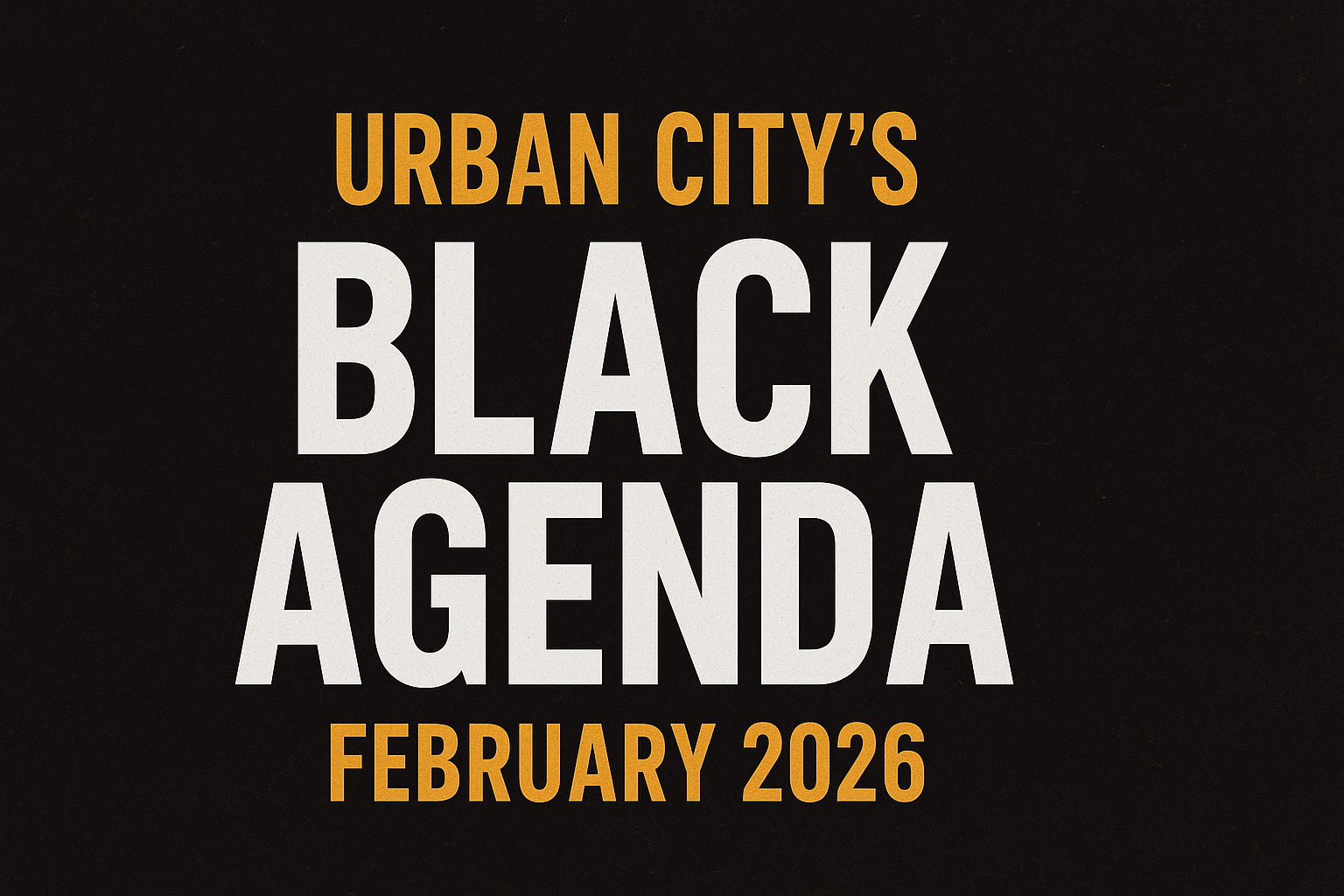Hello, welcome back to the Social Work Report with Val Carson. As always, I’m always excited to be here in the presence of the wonderful people at B-Day 991 on the app. I hope that all of my friends are downloading the app as instructed.
I will have several reminders for you, but the app is a great place. It’s got a lot of different, um, um, good things to know and good things to experience. Good music, great vibe.
Um, so I hope everybody’s downloading, not just for me, but for the station and all of the things that are offered out there. So today I’m just very excited because today I officially have my very first guest and he was so easy to pull in. It’s just like, yeah, sure.
So that’s just, that’s your best guest is somebody that just comes in. But, um, you know, one of the things that I like to do is, um, is to really give people information about things that they need to know about. And one of the things that we just casually talked about one day was, um, you’re just phenomenal kid.
And, um, you know, I don’t have children. And that’s something a lot of people don’t know. They don’t, they don’t think that.
Um, but I parented, you know, I’ve helped people raise kids. And as a social worker, I have provided interventions and I’ve assessed thousands of kids. Oh, I’ve seen kids on every level of okay to not okay to this problem with that problem.
So my super guest today is Mr. Chris Banks. It’s not just the superstar Chris Banks, it’s super dad Chris Banks. I appreciate that.
Look, let me tell you the minute I saw you in it with your kid, I thought, wow, let’s see. That’s, that’s the kind of parent I, you know, that’s the kind of parent you want to see. Big shout out to his mama.
He has an excellent mama. Love you V. I always love my child mama cause she’s excellent as well. Oh gosh, you can say that again.
Yeah, I love my child mama. But not my baby mama. No, that’s the mother.
That’s the mother of my child. Right. And I just hate that as a community, like a society, we have embraced this baby mama, baby daddy thing.
Strong, independent. I don’t need a man. I don’t want to be a, I’m a baby.
I, you know, I got, I have a great mother, my child. So I’m making my being as well. I made to always shout out to see, see, see the MVP now when it comes to these.
And you know, that’s the most important thing about, um, and I’ve talked about this. I just, you know, that’s just another show co-parenting, you know, and that was one of the things that we talked about too, was co-parenting. Um, and I don’t care what kid it is.
It’s so important. People have gotten so far away from being you being a father and there being a mother. Yes.
Sometimes we have, you have to have a mother that has to be a mother by herself or you got a father that has to be a father by himself. And that’s the other thing. A lot of people don’t think it’s a lot more simple fathers out here.
There’s a lot more daddys doing it on their own than you think. And this weekend I was in Atlanta and, um, you know, I don’t meet a stranger. So of course we started talking and the lady said, well, I’m on a girl’s trip and my husband is at home babysitting.
I said, who is your husband babysitting? He said, well, the kids are with him. I said, that’s, are those his kids? And she said, yeah, no father is babysitting. You got a kid.
That’s his kid. Every kid. If he’s a father, that’s his kid too.
You know? So, and, and of course I haven’t met his mom, but every time I see you, I see a dad with a kid. But she doesn’t have to worry about her kid. You know, you don’t have to worry about him with her and she, you know what she expects of you with him and vice versa.
So, and so then the other thing was Chris and I started talking and he said, well, um, you know, he has, um, you know, he’s on a special track. Um, and, and that’s when we started talking about developmental disorders. There are more developmental disorder cases.
Just, I mean, nationally, the numbers exceed two, 300,000 kids with probably way more than that. You just haven’t been identified, but just, you know, just in local stance, you know, if you just look around and a lot more kids with developmental disorders than we think about, and when we talk about developmental disorders, um, clinically people are more respectful of it than they used to be. So now the clinical appropriateness for kids with learning disabilities or functional disorders or it’s developmental disorders where they have had delays in common development of speech, um, walking behavior interventions.
And one that is such a big subject, which is how you and I started talking about this is the autism spectrum disorders. Years ago, people did not know what to do with autism. Like it was this, uh, super unknown realm of, of childhood developmental disorders.
People really didn’t know where to go or where treatment was going. And I can remember midway through these 26 years of social work. 26? I’m not, not, not to say your age.
I don’t think you’d be doing that a long time. Oh, 26. Yeah.
This is my 26th. June was my 26th year. That’s what’s up.
Yeah. Yeah. I mean, you love this.
It’s kind of like being a teacher. Like if you don’t, it ain’t about the money. If you’re doing it, you love it.
But, and, and, you know, even I can say though, I wasn’t an undergraduate social work student. You know, I was in pre-health wanting to do something in medicine and health care, just decided to sit down one day and say, Lord, you know, what is it that I’m supposed to be doing? You know, you had that lost moment that you want to try to figure out what you need to be doing. So I, I saw, um, shout out to my, my DI love, um, I had graduated from Best school in the world.
One of the best schools in the world. Because I went to two best schools. What’s up? All, you know, I’m a brave Tiger.
You know, I got this. School in Lorman. I don’t say their name.
I say the school. The school in Lorman is the mighty Alcorn state university home of the Braves. So then I was a Brave and then I came up here back home and they had to be a Tiger.
So I’m a true Brave Tigress, the whole HBCU girl. At least you kept it in the state. You know what? And people have said to me, you know, how’d you end up going to two HBCUs? Why not? You know, two of the greatest, two of the greatest choices in my life.
And I can remember midway through my career going to, at my third greatest choice of UMC, going to a conference on autistic autism disorders. It was when they finally defined autism as a spectrum versus one single. One thing, one general thing.
Yes. They took away that generalization. It’s broad.
It is very broad. Oh, it is so broad. And the functionality levels are just different.
Like you gotta know each key. You can’t group, you can group together the signs and the criteria to assess and diagnose. But each individual child with autism anywhere on that spectrum is still unique in their own way.
So when I met my big boy, Caden, you didn’t have to tell me what was wrong. But I just saw him as a disciplined child. He was sitting down.
He got up one or two times and you said something and he didn’t stutter. He didn’t stop. He just went back and sat back down.
And I was like, okay. Because you just don’t see certain disciplinary action on a daily basis. That took a long, that was- Really? That was hard.
That was hard. What made you just kind of say, hey? Something different? Yeah. Because he was, he was full, he was full term.
Okay. He was actually walking at eight months, but he fell and hit his mouth and kind of regrets, like he didn’t want to stand up anymore. But we used to see him just get just mad.
Like even at 11 months, one month. Then it went from that to not more so a terrible two, but almost like a destructive two. Okay.
Running, hit the TV hard as he could. Boom, just screaming, screaming, screaming. What about verbal? Verbal, was on point with his letters and numbers and everything.
But then he just wouldn’t have those conversations that you expect. And I know people be like, well, you know, everybody happens differently, but it was certain stuff that I’m like, he wasn’t talking. He wasn’t putting words together.
Only the last word you said. Okay. You want something to eat? Eat.
Okay. What’d you do today? Do today. Well, he got my whole name real quick.
That’s why I’m telling you this. He got Carson real quick. Seeing it now versus 11 years.
It was hard. Then it was, uh, you know, personally, we get this one doctor who’s not us. And I’m kind of wary.
And he just, uh, he’ll grow out of it. I’m like something not right. So I’m not something that something’s not right.
And that’s the thing. This was probably 15, 20, you know, we’re in an age where like 15 years ago, when this became so noticeable to people, there were providers that didn’t know. What to do with it.
Let’s give him this, uh, behavior, behavior. I’m like, I don’t, he’s not bad. He’s just only upset when he can’t verbalize something.
And then I was like, okay, something ain’t clicking. Then finally hit about four or five. I mean, we used to have the worst tantrums.
I mean, on site. How would you get him to, how would you redirect him? Like when you have this tantrum, what would be the first thing that you remember that was, that was affected? Like, was it at first it was given in to what he needed, but then I was like, I can’t do this because of course kids on the spectrum are very smart. He started recognizing, okay, I get this when I do this.
So it literally took some days where I would tell his mama to leave because you know, mother’s handling more emotionally. Dad is handling more logically. It’s a different nurturing approach from the mom.
I said, I got to just as much holler as you. Okay. And not just let them sit there.
We’re not getting it. Fight, kick, fight. We’re not having it.
Would you like to talk? We had therapists come to the house and actually sit there and play with him. He had got so smart. He, he, excuse my word, but he did.
He terrorized them so much that they quit. I was just going to say something. He terrorized them.
Because when you’re a therapist, you, you, you, you’re learning things, you know, you’re learning therapeutic interventions. You have to learn the diagnosis. So you have to learn how to assess and apply and evaluate and then apply the appropriate therapies for them.
And I think what happens with a lot of therapists, they, like we said, they’ll generalize. And then they think it’s going to be the same approach. It’s going to work for injured and it doesn’t work with autism spectrums because there’s still this personality that’s coming from their parental, you know, uh, personalities.
Then there’s the disorder that identifies different things. So what I had to do is funny to say that I had to make him by me being a DJ, loving basketball, loving, he was a daddy’s baby. So I just made him go everywhere I went and watch me do certain things.
So he can actually play with a DJ turntable. He’s, he’s, he’s actually pretty decent far as shooting the basketball, but those was the hard times. But when you think about it though, that’s what you would have done.
I mean, he, even though he’s, he’s classified in this group, if nothing was wrong, you’d be a daddy taking your kids. So basically you just handled him like, like nothing. And I didn’t let him sit on the women all day.
I didn’t. So I would say to someone with a girl, wouldn’t necessarily say that the mom would be the other person. What we wanted a daughter.
And I, and I always in, uh, my mama said, you didn’t need a daughter cause she wouldn’t have had that baby neither. But you know, daddy’s relationship with the daughter is still important. Yeah.
But I guess what I’m saying is you’ve already given so much credit to both parents. Yeah. That even though you took him with you and that was important to let him see that.
Yeah. I think that also probably was what was beneficial for her. Yeah.
Because it was her, it was, it was, it was, it was, it was hurting her because, you know, the mother, she, you know, she’s thinking, what did I do wrong? You know, so mentally she had like, uh, like, uh, just thinking that not more so regret, she did something, it was something wrong and she didn’t do pregnancy or something. Any answers. And then he was born while I was in Iraq.
So say that again now, she was not getting any answers. Yeah. She wasn’t getting any answers.
And that’s what is so important right now. Because, because I’m still old school daddy. Yeah.
So before I knew, I’m like, okay, there’ll be no fight back and hitting and cussing that we tap some legs, you know, I’m just going to get over here and say, but it’s like, okay, he ain’t purposely doing this to do it. He, I don’t think he understand what’s going on. Let me ask you this.
When you are out, she’s saying you’re out and you’re around a lot of people. You guys just amazed me with all the places. When you, when you encounter another kid that, that, that is either the same or you just see other kids.
Like, what do you do? I let him go. I let him go. Yeah.
Listen, listen, I’m Wes Jackson. You got, you got, I let him get a little Wes Jackson in him now. We gotta go.
But the only disagreement we had, I asked once we found out I accepted it more and me, I had no problem letting people around know, Hey, he’s going to play. He’s very, a touchy feely. He’s aggressive not to hurt you.
If he like you here, he came up and like gave me the fist bump, but there were no hugs. One on he, he, the church hood baby, but I just let him know like, Hey, he’s this, he’s this. And mom was like, I don’t want to tell people.
They’re going to look at different. I’m like, listen, people, if most people do stuff, cause they don’t, they, they, they doing it unconsciously with us as parents. It’s okay to let them know because you will actually be surprised many people have more compassion about it versus, and say, he just bad.
He’s spoiled. You need a whooping. I done seen kids ain’t done supposed to be wrong with them.
They can’t do that. They can’t, they can’t be in a social setting and just sit down and, and when, or even when the parents Okay. Or you just look at them and they know it’s time to sit down.
I gave him one night too long ago before we got in here. Cause what I told you when he, he’d been on 10 today. Yeah.
Yeah. He’d been on 10 today. So it’s just, it was a lot of that, a bunch of me saying it then when she started saying it, cause you know, mamas, they nurturing.
That’s my baby. That’s my baby. And I’m like, he’s my baby too.
But as a, as a man and as a dad and as a black man, it’s like, listen, we already behind, behind the starting line. And then he has a disability and then you’re dealing with a world, which was my scariest time. When I saw all the kids getting hurt because officers couldn’t recognize this.
That was, that’s probably my biggest fear. And you know what? That’s a very important. That is my biggest fear.
And my only other fear is life after mom and dad, if they’re not around. And I must, I’m gonna take you right there because one of the reasons I was so excited about having this conversation with you is because, um, as a hospital social worker, there is no limit to what we see. What I started noticing after these 15 years of, of, uh, changes clinically for, um, ASD was seeing these kids age.
So I’ve seen kids that were younger than we have seen on and off course of their lives. And when you see an 18 year old that you saw when they were five, now it’s a whole nother thing. And you said something that’s very important.
What happens when the parents are gone or what is going to be the plan in Mississippi is behind. I know some other States may be behind too. Because half the people you see this talking to themselves, yeah, there’s homeless or they just, most of them are probably, well, there I’ll say this, some of them, I’ll say, yeah, they say some, because what we’ve also seen with ASD is, is it’s a combination of diagnoses.
You’ve got some schizophrenics who are on the spectrum. You’ve got some IDD intellectual developmental disorder kids that are on the spectrum, but that combined learning disability with this can be too much. And you’re right.
They are the example of a deceased parent. They got lost in the system or whatever. Cause now they’re adults.
Taking his money, spending his money. But when you look, I want to go back to when you, you worry about the police not being able to recognize and they harm them. The 18 year old that I had, I won’t say this police department’s name, but I do pride their officers on what the mother said to me was that they have been to the house so many times over the years, this kid got used to different officers in this place.
And he’s, he was, he would shut down completely when they got there, all the aggression, they could redirect them. They could get him in the ambulance and she could get him to the hospital. They were a big part of his consistent environment.
But if they hadn’t been aware of him, they could have hurt him because they could have taken him as an aggressor and harmed him. So that’s important when you talk about one of my biggest fears, one of my biggest fears. And so then I’ll go to resources.
You already mentioned that it was like, you didn’t get answers when he was young. Tell me if you’re able, are you, are you getting resources? He is so well, we always found out that his stronghold was his memory. His memory is, I mean, back to, we’ve been kicked out of so many programs.
YMCA didn’t want him. After a week, he was mingling with the kids, but he’ll never met, we can’t deal with him. Another YMCA, a swimming school.
Oh man. Mississippi school of the, we went to the Mississippi school of the, uh, Magnolia speak school, Magnolia, Magnolia. I’m sorry, Magnolia.
Gone. But the thing was, Richard Brannon, he was at Richard Brannon one time and it was just, nobody knew. He’s in here kicking, he’s in, I’m like, well, what you want me to do? You know, a lot of parents were mad cause I just went, so what you want me to do? Just beat on them? I finna beat them.
But I’m going to say this, one thing I can say about, I don’t want to say turned away or kicked out, but it was probably in your best interest because you don’t want your kids somewhere where people don’t know what to do. And I can say this, I took a big stand in my, in my area that parents would just begging us to send their kids to psych units. And I had to advocate for one, you don’t want your kid in a general psych unit with other adolescent kids that are psychiatrically ill because psychiatric disorders, strictly behaviors differ from what you see.
You make him vulnerable because he’s not psychotic and he’s basically just a kid that is needing to be in a setting of specialized care, but not in a room with kids that are schizophrenic. Or just kids with generalized behavior disorders. So these parents would be so upset because they were like, well, we, what are we going to do? We started figuring out when you need respite care, you need respite placement a week, two weeks, a month to get yourself some rest and let the kid get some type of therapeutic intervention.
So I will say, have you been able to identify that kind of resource? Those resources have come about, but the thing of it is, I thank God for him. I love him so much. We, it didn’t get there.
It didn’t get there. It did not. He is honestly, he’s honestly on, he’s in his right grade.
As you know, he’s talking. We didn’t have like, we didn’t have a lot of issues because people think, you know, when they hear certain things, they think, oh, you have to care for them and wipe them. You got to do all their daily care.
Like he can put, he can put his clothes on. He can dress himself. You’re going to put food in the microwave.
You seen earlier, he gets the phones. He, he is on track for that. His thing is more so how they would explain it.
He’s 11, but he still may have a mindset. His intellectual level of functions that I’ve observed is probably midway. It’s kind of like half.
So I have an 11 year old age, but actually six or seven. But really though, that’s probably his intellectual level. But I will tell you, his behavioral level is appropriate because he can sit and he can, his attention span can be kept and he doesn’t interfere.
I mean, you work and he’s, you’re working. He’s taking the gigs with me. He take DJ gigs.
He just sit down. I give him a tablet and he would sit behind there. And I know it wasn’t a lot of people, a lot of people if you listen, I’m sorry if I brought my son to your wedding or whatever, but I did dress him in the same uniform as me.
People bring their kids to the wedding. There was kids there, but let me ask you this. Did he interfere with your work or whatever your professional outcome needs to be? And he’s a professional tailgater now.
Literally, that’s one. Now, a funny story I will tell you. So we’re going by, his mom stays in Madison.
I stay in Clinton. So every time she arrived by Woodrow Wilson exit, he would just cry, cry, cry, cry, cry. And she went to Lanier.
So sometimes she’d take Woodrow Wilson to go to her grandmother’s house. And so every time she got by the stadium, he would cry, cry, cry, point, point, point. She said, Chris, what is wrong with him? I’m like, what you mean? She said, every time I come by the hospital, he is crying.
I said, oh heck baby. I said, he want to go tailgate. She said, that’s why he, she said, that’s what he’s saying.
Mailgate. I said, nah, he trying to tell you tailgate. Well, and what that is, is the consistency of an environment and consistency of events and recreation.
So he identifies where it is, but the key to this is this though. He recognized that that’s where it was, which meant if there are locators, if something happened, he knows he would at least know where he is and not maybe not be able to verbalize it, but he recognized where he is, which some kids with no problems can’t do so. And it’s amazing because with my work schedule, his mom has them more and just things that I didn’t think he would understand.
And I blame myself because I underestimate him a lot. He knows when he’s gone with me and just recently, he knows he goes to his mom tomorrow and he was just like, Hey daddy, we’re going to mommy house tomorrow when you go to work. And I’m like, his conversations are literally like that.
And I’m getting a glimpse of it. And I’m in heaven for like two minutes, two to three minutes. It’s literally like me and then it just go back.
Well, when you said that, and since you said that, how, which is what you mentioned earlier that people couldn’t handle him at certain programs and things like that, but he was, but you noticed that he was actually interacting with his peers. How’s he doing with peer interaction now? He’s doing great. He’s doing great.
He, you know, of course he’s, he’s in school and it’s right. Great. He’s still separate, you know, but the whole, which is probably just because he, my child could hold school knew me.
Cause I was a problem. I was, I was very active in getting everybody knows Kate. Yeah.
Clean up, clean up, clean up, loves helping. Very happy. He just gonna run everywhere you go.
Let me ask you this though. One of the most, one of the most, one of the one significant behaviors of real limited socialization or ability to socialize on a scale of like, I grew up in this kind of naive, touchy, huggy person. So when I became a social worker, people thought, well, that’s right for you.
Cause you, I’m really not like that professionally. I am not like that. And especially since COVID, you know, but yeah.
So we’re in a generation now, we’re not a generation at a time now where just a socialization has gone through a limited phase. And now people are kind of bad. How do you, you know, he doesn’t seem to just shy away from.
He doesn’t, he doesn’t shy away from it. He is the only child, but he is the only child. So he’s figured out how to be by himself anyway.
But if kids come around, he’ll come around. But, you know, like I say, it’s more so like, you know, how we’ll say, Hey, what’s going on? He’s still kind of like, Hi, my name is Kayden. Like he speaks to me and tells me my name.
Yeah. Yeah. His memory is, he remembers everybody in his classroom when he was three years old.
Now, and when you say classroom, I think it’s important for parents in this same situation too, because when you’re communicating with teachers and because he’s got to go to school, you know, and I know that other people in other programs had problems, but now he’s, he’s included. He’s in an inclusive environment at school. When, when he interacts with his peers, how the teachers communicate, how well are they communicating with you about any problems that he has to find a corrective action? We have one who I just feel is not equipped to deal with it.
The other teachers, everybody else, and probably because they see me out when we out doing grown people stuff, they are so good to him. Like God has been really good to me and his mom, as far as people around him, because he is a ball of joy to be around. Yeah.
He’s a ball of joy. So they’re, they’re really, I tell them, let him go. But then when I, I have to measure it and I tell them to measure how much, and the parents should be doing too though, because he, now he has was a point where he would get stimulated, overstimulated, and too much to the point where he’ll, and that’s one of the things that you’ll say, yeah, listen.
He’ll go to fussing at itself and I’ll say, Hey, Kaden, we’re not fussing at ourself, right? No sir, we’re not fussing at ourself. What are we mad about? Um, we mad. What are we mad about? And then usually it just comes to somebody made a bump to him and knocked his ball out his hand and didn’t say excuse.

